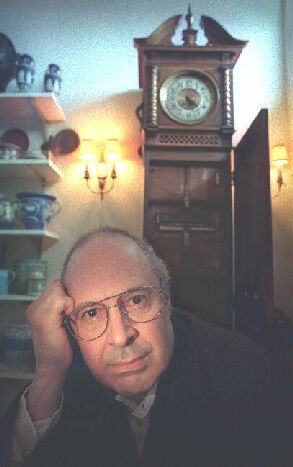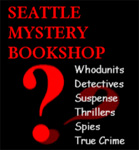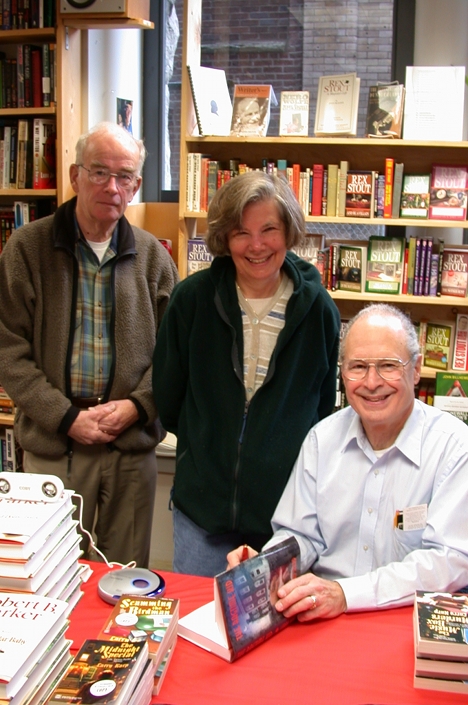 |
|
 |
| |
|
| |
|||||||||||||||||||||||
|
ABOUT LARRY KARP AND HIS BOOKSLarry Karp grew up in Paterson, New Jersey and New York City. He worked as a specialist in complicated pregnancy care for 25 years, founding the Prenatal Diagnosis Center at the University of Washington, and Swedish Medical Center's Department of Perinatal Medicine. Residents in the Family Practice Programs at both Swedish and Providence Hospitals named him Teacher of the Year.
During his medical years, Larry wrote newspaper and magazine articles on a wide range of subjects, as well as a monthly column of commentary for the American Journal of Medical Genetics. He also wrote three nonfiction books. The View from The Vue described life as a med student and intern at New York's Bellevue Hospital; The Enchanted Ear was a collection of anecdotes about collecting and restoring antique music boxes. Genetic Engineering: Threat or Promise discussed the newly-emerging fields of genetic manipulation in humans. (Of this work, the author of a major genetics texbook wrote, "Of the many recent books on genetic engineering the only one that...carefully delineates the limits of current knowledge and tries to evaluate the significance of recent advances without resorting to sensationalism is by Karp").
Larry collects and restores antique music boxes, and is a regular contributor to Mechanical Music, the magazine of the Music Box Society International. In 1997, the Society presented him the Bowers Literary Award "for outstanding literary contributions to the field of automatic music."
In 1995, Larry left medical work to write full-time. He chose to write mysteries because the genre demands stories to be well-paced and tightly-constructed, but does not preclude the possibility of presenting characters and ideas which refuse to leave the reader's mind once he or she closes the back cover of the book. Larry set his well-received Music Box Mystery Series (The Music Box Murders, Scamming the Birdman and The Midnight Special) in present-day New York City. For his next book, First, Do No Harm, a World-War II home-front standalone involving complex and troubling medical ethical issues, he moved back to 1943 to a fictionalized Paterson.
Then, Larry ranged further back and farther away to write a historical-mystery trilogy, three books which blended fiction into history to look at signal events, social attitudes and racial relations at the birth, death, and revival of ragtime music in America. The first book, The Ragtime Kid, was set in Sedalia, Missouri in 1899, when white music-store owner John Stark made the extraordinary and unexplained offer of a royalties contract for a tune, "Maple Leaf Rag", by a young, little-known black composer named Scott Joplin. The second book in the trilogy, The King of Ragtime, was set in New York City in 1916, and centered on a real-life dispute between Joplin and Irving Berlin over an accusation of musical plagiarism and theft. The third book, The Ragtime Fool, completes the trilogy, as Brun Campbell, the old Ragtime Kid, comes back to Sedalia in 1951 to take care of some unfinished business.
What's the latest? During his first career, Larry served as Medical Director of Swedish Medical Center's Reproductive Genetics Facility and delivered the first baby in the Pacific Northwest conceived through in vitro fertilization. He drew on that experience to write A Perilous Conception, the story of an overly-ambitious young obstetrician in the Pacific Northwest, secretly trying to make medical history by producing the world's first IVF baby. Unfortunately, that sort of secret is hard to keep, and the upshot is blackmail and murder.
Larry's books have been finalists for the Daphne and Spotted Owl Awards, and have appeared on the Los Angeles Times (The Ragtime Kid, December 2006) and Seattle Times (The King of Ragtime, November 2008) Fiction Best-Seller Lists.
|
|




